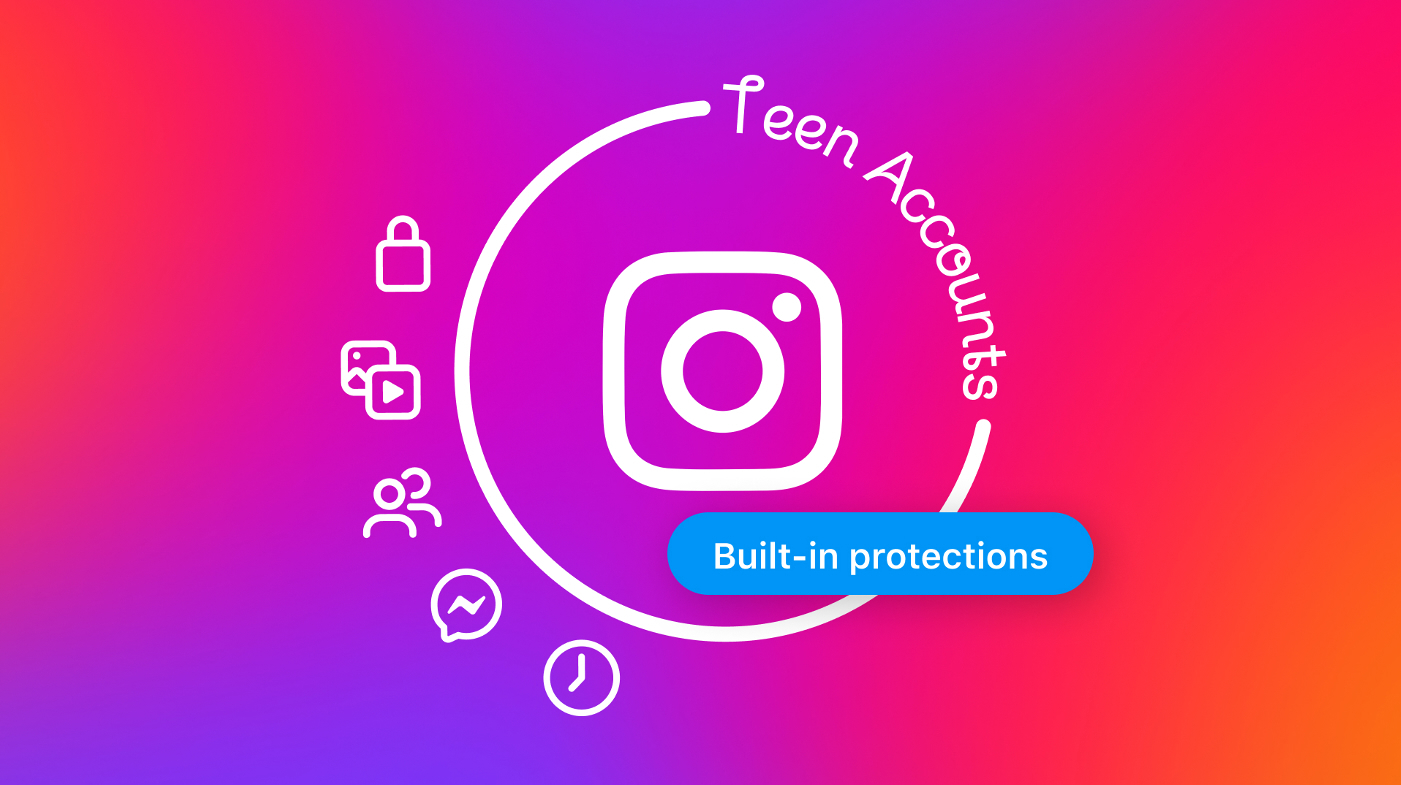
Global social media giant Instagram has announced a raft of changes that will be implemented on their platform in the days and weeks ahead to change the experience for teenagers in some fundamental ways.
The changes, Instagram says, are not inspired at all by the Australian government’s recent push on banning social media for kids.
In fact, the company’s boss Adam Mosseri told 9news.com.au: “It’s been upwards of a year since we started working on it”.
REVIEW: Great sound on Airpods 4 while pushing down costs
Instagram has had parental supervision built into the app for several years now, allowing parents to monitor new activity on their kids accounts, but these new changes go far further, forcing all instagram accounts of teenagers into a new Teen Account category by default, imposing restrictions on public access to the account in a bid to ensure safety and a better age appropriate experience for the younger user.
Those restrictions include:
Marking all Teen Accounts as private, so they need to accept new follower requests and non-followers cannot see their contentStrict messaging rules, ensuring they cannot send private messages to people they are not connected to and vice versaRestrictive content settings, limiting sensitive content they are shownOffensive word filters in direct messagesBreak reminders after extended periods of useA new “Sleep Mode” from 10pm to 7am when notifications will not be sent
Plus, the ability to actually choose topics they are interested in, to attempt to customise their Instagram feed.
Critically, for kids under 16, to turn off any of these restrictions it will require a parent’s account to be linked to theirs and the parent to enable the changes.
Teens over 16 will be able to turn off these settings at their own choice, unless they are linked with a parental account – if so, a parent will need to approve.
Instagram will implement these changes on accounts where a date of birth is listed, as well as on accounts they attempt to verify as Teen Accounts.
However, and this is relevant to the current Australian government debate, Mosseri told me that age verification is very, very hard.
“Verifying or even just understanding age at scale is just tough,” he said.
“If you want to get a sense for how tough, we can send you 50 teen accounts and you can try to look at all of them and see if you can figure out who’s 15 and who’s 16.
“It’s just a hard problem to solve.
“That said, we have a responsibility to do all that we can and we’re getting pretty sophisticated.”
READ MORE: Apple has promised better AI privacy. It’s time tech addressed our concerns
Looking at it as an industry-wide problem, Mosseri believes the approach his company is taking is class-leading.
“I think we are either the best or close to the best in the industry at understanding age,” he said.
“That’s a combination of age collection, age verification, and age prediction. But there’s always more work to do.”
Critically, Mosseri believes that device manufacturers could hold the key to this problem at scale.
“The single easiest thing that could happen that could massively improve age understanding across the entire industry would be if Apple and Google would actually allow apps to request birthdays in a privacy-safe way.
“I don’t know if this will ever happen.
“I’m not trying to pass responsibility. We’re going to do everything we can, assuming it never happens.
“But I can, as an app developer, ask a phone for access to your microphone, to your camera and to where in the world you are right now within 10 feet, which are much more sensitive pieces of information than the day you were born.
“We’re going to continue to advocate for that, but we’re also going to continue to assume it never happens and do everything that we can without that support.”
These new Teen Account changes will be introduced immediately, but slowly.
Some users may experience the change in the coming days, but the majority will be implemented within a couple of weeks.
Asked if he believed these changes would put pressure from government and lobbyists at ease, Mosseri was pretty clear.
“I think it will appease some concerns and not others,” he said.
“I think the situation in Australia is more antagonistic than any other region at this point.”
Mosseri also thinks that politics needs to be removed from the debate.
“I think it’s complicated,” he said.
“I think there are people who are involved who are very ideologically motivated and that’s good.
“I think there are people who are involved who are a hundred per cent politically oriented, motivated, and that’s not good.”
Refreshingly, Mosseri and his team appear to be putting the needs of families first.
“So for us … it’s parents first. What do they care about? They know best, right?
“Every teen is different, So the other reason why the tools for the parents are so important is yes, many parents won’t use them, but for those who do, they know what’s best for their teen.”
These new Teen Account restrictions will come at a cost to Instagram, Mosseri admitted.
“We are definitely going to see a loss of teen engagement and teen growth,” he said.
“So the number of teens that use Instagram relative to what would’ve been otherwise, that is going to happen.
“I have to assume it’s good for our business over the long run over the next five or 10 years, but it’s going to be difficult and it’s going to hurt over the short run.
“But we’re going in knowing that and our bet is we’ll feel good about it in five years.”
links to content on ABC
9News





